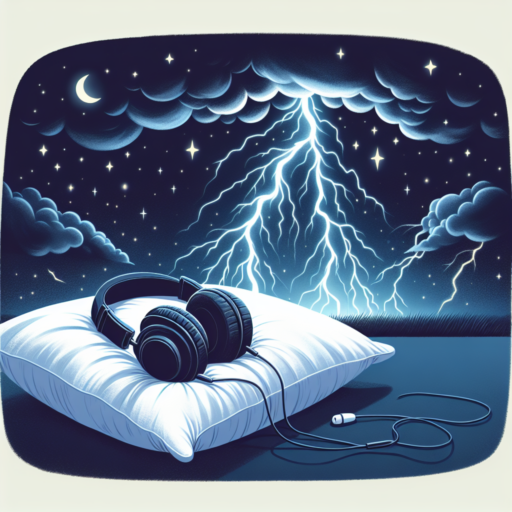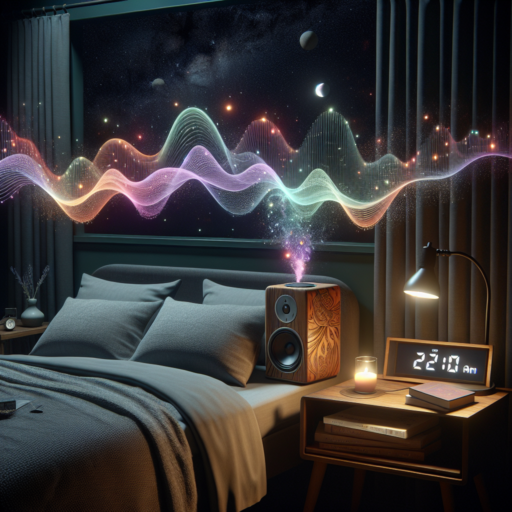Is it good to sleep with background music on?
Sleeping with background music on has become a popular trend, especially amongst individuals struggling to find tranquility in silence. The concept of drifting into slumber with soothing melodies in the background raises questions about its effectiveness and implications on sleep quality. Research indicates that certain types of music, particularly compositions with a slow tempo, can indeed facilitate a quicker transition to sleep by promoting relaxation and reducing stress levels.
Benefits of Sleeping with Music
One of the major benefits of listening to background music before bed is the potential to improve sleep quality. Soft, gentle tunes can help drown out environmental noises, creating a peaceful atmosphere conducive to falling asleep. Moreover, music has the power to soothe the nervous system, lower heart rate, and decrease blood pressure, all of which are conducive to enhancing the quality of sleep.
Choosing the Right Type of Background Music
Not all music is beneficial for sleep. It is crucial to select pieces that are calming and have a slow rhythm, ideally ranging between 60 to 80 beats per minute. Instrumental tracks, classical music, and certain genres designed specifically for relaxation, such as nature sounds or white noise, are among the most recommended choices for promoting a restful night’s sleep.
While the idea of sleeping with background music holds promise for many, it is important to recognize that individual preferences and responses to music can vary greatly. Therefore, experimenting with different types and volumes of background music can help determine the most effective personal sleep soundtrack.
Does listening to music while sleeping disrupt sleep?
Many people have the habit of listening to music as they drift off to sleep, believing it helps them relax and fall asleep faster. However, the impact of music on sleep quality has been a subject of debate among sleep experts and researchers. Understanding how music affects sleep patterns is crucial for anyone looking to optimize their nighttime routine for better rest.
Studies suggest that the type of music and its volume play significant roles in determining whether music will be beneficial or disruptive to sleep. Soft, melodious tunes at a low volume can indeed facilitate the transition into deep sleep by calming the mind and reducing stress levels. However, playing music with high beats per minute, intricate rhythms, or at a loud volume can lead to disturbances in sleep cycles, including the light and deep phases of sleep.
In addition, personal preferences and individual differences in how music is perceived also contribute to its effects on sleep. While some individuals find that any form of music is disruptive, others may discover that specific genres or compositions enhance their sleep quality. It is also important to consider the impact of wearing headphones during sleep, as they can cause physical discomfort or pose risks of excessive volume exposure.
No se han encontrado productos.
What is the best music to listen to when you cant sleep?
Finding the right music to guide you into the land of dreams can sometimes feel like a quest in its own right. The answer to what constitutes the perfect sleep-inducing soundtrack varies, as personal preferences play a pivotal role. Nevertheless, certain genres and rhythms have been widely recognized for their soothing properties.
Classical music stands out as a top contender, with its slow tempo and lack of lyrics allowing listeners to relax and drift off without being distracted by a narrative or upbeat rhythms. Pieces such as Debussy’s «Clair de Lune» or Beethoven’s «Moonlight Sonata» are often praised for their calming effects. Additionally, ambient and nature sounds manifest as popular choices, offering a background of tranquility through the replication of rain, ocean waves, or forest ambiance.
It’s essential to consider that volume and familiarity also play crucial roles in the effectiveness of sleep music. A sound level that is too high might keep you alert, while songs that are too familiar might engage your mind rather than soothing it. Thus, gently played, instrumental or lyric-less tracks are preferable, as they provide a balance between being recognizable enough to comfort without stimulating cognitive engagement.
Can you sleep through music?
Many individuals ponder the question: Can you sleep through music? The answer is not straightforward as it depends on various factors such as the type of music, volume, and personal preference. Research suggests that certain types of music can indeed promote better sleep quality by helping to relax the mind and body.
One significant aspect to consider is the type of music. Soft, slow-tempo music, often labeled as chillout or classical, can have a soothing effect, encouraging the body to relax and ease into sleep. On the contrary, music with a fast tempo or heavy beat might stimulate the brain, potentially delaying sleep.
The volume of music is also crucial when attempting to sleep. Listening at a low volume is generally recommended as it can drown out background noise without being disruptive. High volume levels, however, may prevent deep sleep stages, leading to a feeling of not being well-rested.
Choosing the Right Music for Sleep
- Opt for genres known for their calming effect, such as classical or acoustic.
- Consider music with a tempo of 60-80 beats per minute, which can help synchronize with the heart rate, promoting relaxation.
- Instrumental tracks are often recommended over those with lyrics to avoid engaging the listener’s thoughts too much.




